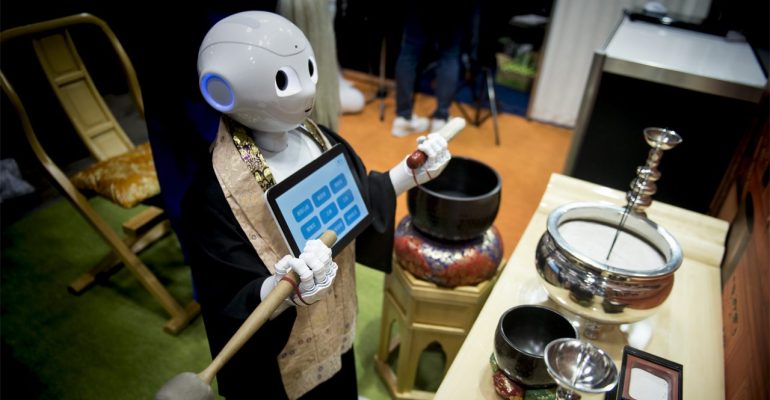How artificial intelligence is shaping religion in the 21st century
May 20, 2018 2023-07-01 11:35How artificial intelligence is shaping religion in the 21st century

How artificial intelligence is shaping religion in the 21st century
Technology and artificial intelligence (AI) are fashioning how people interact with everything from food to healthcare — and so, too, for religion. From electronic scriptures to robot priests, different faiths have absorbed new ideas from the world of technology to enhance mainstream religious practices.
Muslims across the world can download apps such as Muslim Pro, replete with daily prayer timetables, notifications for both sunrise and sunset, and an electronic compass pointing the way towards Mecca. Other apps automatically adjust fasting times during the month of Ramadan, depending on the location of a device.
In fact, Muslims are one of the most plugged-in religious communities due to the high concentration of young people aged between 16 and 30 across the Middle East and Asia. A survey by the Pew Research Center in 2017 showed that poorer Muslim-majority countries boast a large amount of people with smartphones. Fifty-seven percent of Palestinians own a smartphone, for example, just short of Germany’s 60 percent.
Developers in Japan went a step further last year, unveiling a robot priest programmed to conduct Buddhist rituals. Peppa the humanoid robot, replete with ceremonial dress, can perform a funeral ceremony for $462, cheaper than the $2,232 charged by a human priest to carry out the same task.
Faith leaders are increasingly concerned about morality and the ethics behind creating human-like machines.
Source: CNBC








